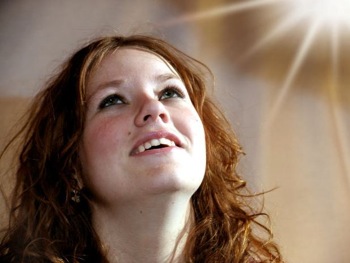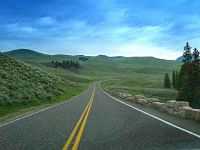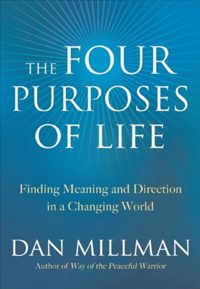 Viktor Frankl asserted in his book, Man’s Search for Meaning, that the fundamental need for purpose and direction in our lives may be as important to our psychological growth as eating is to our biological survival.
Viktor Frankl asserted in his book, Man’s Search for Meaning, that the fundamental need for purpose and direction in our lives may be as important to our psychological growth as eating is to our biological survival.
With the accelerating pace of life, it’s not easy to maintain our sense of direction. Yet we strive to do so, because a sense of purpose toward a meaningful goal may be the best part of happiness. In this pursuit, the journey may indeed matter more than the destination — but without a destination to aim for there is no journey; we can only wander.
We humans are goal seekers from infancy, drawn by the objects of our desire. But
somewhere along the way, most often in the dilemmas and angst of adolescence, a sense of confusion obscures the simple desires of childhood. What we want is muddied by expectations about what we (or others) think we should do. We begin to doubt our desires, mistrust our motives, and wonder where we’re going and why.
When my seeking ended and the practice began, I came to understand that what we all need, even more than a happy feeling, is a clear purpose — a meaningful goal or mission that connects us with other human beings.
But the duties of our daily lives leave little time to contemplate life’s larger questions, except on rare occasions, in the silent hours or in times of transition or trauma, when we are compelled to ask: What do I really want? How would I know if I had it? What would happen if I got it? Is getting what I want going to take me to where I want to be? And finally, What is the purpose of my life?
 Maybe you’ve wondered why you’re here on Earth or what you’re here to do — what the French call your raison d’être, your reason for being, an organizing principle and sense of direction that gives shape and meaning to your life. History provides numerous examples of iconic figures like Joan of Arc, Mohandas Gandhi, Nelson Mandela, and the Dalai Lama, whose clarity of purpose drew others to their missions like moths to the light.
Maybe you’ve wondered why you’re here on Earth or what you’re here to do — what the French call your raison d’être, your reason for being, an organizing principle and sense of direction that gives shape and meaning to your life. History provides numerous examples of iconic figures like Joan of Arc, Mohandas Gandhi, Nelson Mandela, and the Dalai Lama, whose clarity of purpose drew others to their missions like moths to the light.
The Four Purposes of Life propose some fundamental “reasons for being.” The book was inspired by my own quest for a purpose in life. I once believed that my purpose was all about work, and I searched through my twenties and well into my thirties for a career and calling. It took another decade of exploration and introspection before I understood that career is only one of four primary purposes in life.
Some might argue that our sole (or soul) purpose is learning to love — that whatever the question, love is the answer — or that spiritual awakening or surrender to God is our ultimate aim. Others point out that our primary biological purpose is family — bonding with a mate, and bearing and caring for children. Still others might suggest that there are as many purposes as there are people. Yet just as we divide all the days of the year into four seasons, and points on a compass into four primary directions, sorting our experience into four fundamental purposes helps us to create a sense of structure to better organize our lives.
Certainly one of the basic purposes — and the first one we explore in the book — is to learn life’s lessons. This centers around the premise that Earth is a school and daily life is our classroom, and that our daily challenges (in our relationships, at work, with our finances and health) bring learning, growth, and perspective. The value of our life experience resides in what we learn in the process. Difficult days may provide the most important lessons, helping us develop the awareness and self-reflection that lead to higher wisdom.
The second purpose — finding your career and calling — underscores the critical
importance of self-knowledge, as well as integrating both logic and intuition, in making the wisest possible life decisions. This section also shows how the service you provide in the world can become a meaningful path of personal and spiritual growth.
The third purpose — discovering your life path — addresses a hidden calling you’re here to explore, a personal path that for most people remains obscure. The information in this section sheds light on the strengths you possess and challenges you face, highlighting a deeper mission you’re here to fulfill.
The fourth purpose — attending to this arising moment — brings the first three into sharp focus and down to earth, enabling you to integrate all the others with awareness and grace, here and now.
 I wrote The Four Purposes of Life
I wrote The Four Purposes of Life for anyone seeking deeper insight into themselves and their lives, but especially for those at a crossroads, facing a challenge or change, when “business as usual” no longer applies. I invite you to explore the four key purposes that can provide meaning and direction in your life, and in a changing world.
Dan Millman is the author of 17 books read by millions of people in 29 languages. He teaches worldwide, speaking to men and women from all walks of life, including leaders in the fields of health, psychology, education, business, politics, sports, entertainment and the arts. His lives in Northern California and his website is www.peacefulwarrior.com.



















